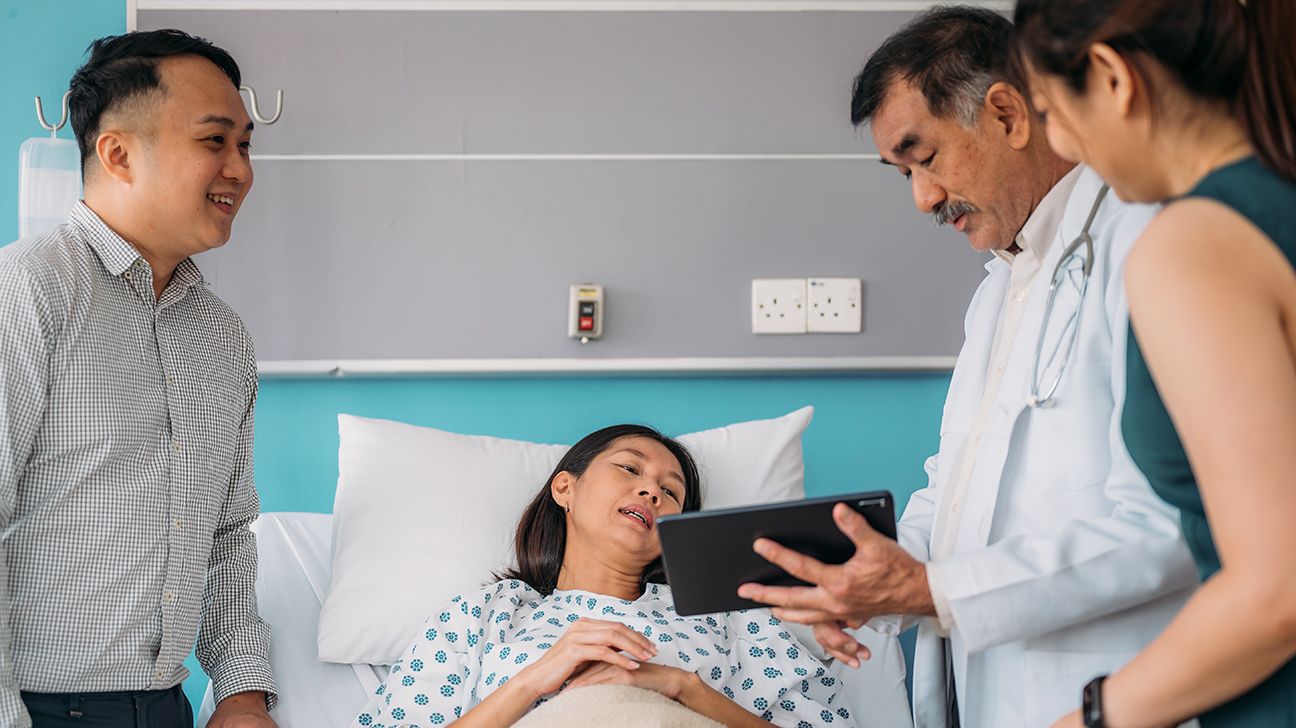You shouldn’t skip your colonoscopy just because you have hypoglycemia. Instead, you’ll need to adjust the way you prepare for the procedure to reduce your chance of having a hypoglycemic event.

If you’re a certain age, you may be ready to undergo a colorectal cancer screening. The American Cancer Society recommends that people at average risk of developing colorectal cancer start getting screened at
A common test for this type of screening is a colonoscopy. This involves a doctor threading a long, flexible tube with a tiny camera on the end through the anus and rectum to look at the inside of your colon.
Preparing for a colonoscopy usually requires eating a low fiber diet for a few days and drinking clear fluids and taking laxatives to clean out the bowels.
However, the process can be different for people with a tendency to develop hypoglycemia, or low blood sugar levels. In this instance, you might have to adjust your preparation for a colonoscopy to account for the risk of experiencing hypoglycemia.
Some people may have to alter the way they prepare for a colonoscopy. This can include those who:
- have diabetes
- have heart disease or kidney disease
- are over 65 years old
- take insulin or other diabetes medications
If one of the above applies to you, your doctor may suggest doing the following to prepare for the procedure.
Glucose monitoring
If you have diabetes or a tendency toward hypoglycemia, a doctor will recommend closely monitoring your blood glucose levels during the preparation.
If you normally check your blood glucose levels daily, check them more often the day before and the day of the colonoscopy. You’ll also want to check your blood glucose levels if you develop any symptoms of low blood sugar, such as shakiness, jitteriness, dizziness, or headache.
You may need to drink soda or clear juice or use glucose tabs if you do experience low blood sugar before the procedure.
Bowel preparation
The phrase “bowel prep” essentially means cleaning out the bowel so that it will be clear for viewing during the colonoscopy. Generally speaking, this means using some type of laxative or a combination of laxatives around 1 day before the colonoscopy.
Various types of laxatives are available. Consider speaking with a doctor about which bowel prep method is most appropriate for you.
Clear liquid diet
The day before you have a colonoscopy, a doctor will recommend sticking to a clear liquid diet to make sure your colon is clear. You may also need to drink only clear liquids on the day of the procedure. You can drink fluids like water, apple juice, white grape juice, and others.
If you’re concerned about how this may affect your hypoglycemia, discuss this in advance with a doctor. They can help you develop a strategy for handling a hypoglycemic episode if one occurs.
If you have diabetes, a doctor may encourage you to drink both sugar-free drinks and beverages containing sugar to help you manage your blood sugar levels. You should also check your blood sugar levels often so you’ll know when you need to drink something containing carbohydrates.
Medication adjustment
If you take insulin or other medications to help you manage your diabetes, you may need to temporarily reduce your amount of medication a day or so before having a colonoscopy. In some cases, you may even need to
However, the adjustments will vary from medication to medication. Talk with a doctor about how to approach taking your medication in the days before the colonoscopy and when you can safely resume taking your normal doses.
Staying hydrated
Staying hydrated is essential when you’re preparing to have a colonoscopy. Usually, experts recommend that you stick to clear fluids. It’s especially important to drink a lot of water if you’re taking laxatives in pill form.
If you have type 2 diabetes, you may also have a
The typical colonoscopy preparation — including fasting, making changes to your diet, using laxatives, and making changes to your medication — can all
If possible, consider asking for an appointment in the morning so that you can return to taking your medications as usual in the afternoon.
Once you’re awake from the anesthetic, a doctor will typically give you an update on how the procedure went. However, if they took any tissue samples for a biopsy, it may take a few days for the pathology results to come back.
After a colonoscopy, you may feel a little bloated or gassy or have abdominal pain, which is common. If a doctor removed any polyps during the colonoscopy, you may temporarily experience a little bleeding from your rectum afterward. If the bleeding lasts longer than a day, you should let a doctor know.
According to the
However, it’s also important not to assume that everything is back to normal right away. People with diabetes are at increased risk of experiencing hypoglycemia for a few days after a colonoscopy.
In fact, a 2023 study found that
You may have to adjust the way you prepare for a colonoscopy to account for low blood sugar levels.
However, don’t let this discourage you from getting screened for colon cancer, especially if you have diabetes or other health conditions that may increase your risk of developing the condition.
